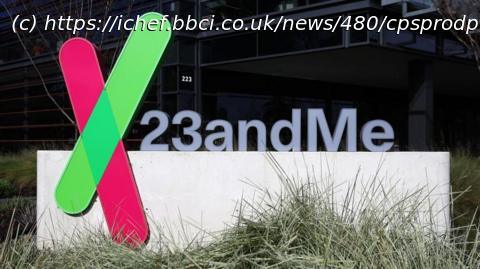Once millions used it to find out about their family histories – this week it was almost delisted. What went wrong?
Three years ago, the DNA-testing firm 23andMe was a massive success, with a share price higher than Apple’s.
But, from those heady days of millions of people rushing to send it saliva samples in return for detailed reports about their ancestry, family connections and genetic make-up, it now finds itself fighting for its survival.
Its share price has plummeted and this week it narrowly avoided being delisted from the stock market.
And of course this is a company that holds the most sensitive data imaginable about its customers, raising troubling questions about what might happen to its huge – and extremely valuable – database of individual human DNA.
When contacted by the BBC, 23andMe was bullish about its prospects – and insistent it remained “committed to protecting customer data and consistently focused on maintaining the privacy of our customers.”
But how did what was once one of the most talked-about tech firms get to the position where it has to answer questions about its very survival?DNA gold rush
Not so long ago, 23andMe was in the public eye for all the right reasons.
Its famous customers included Snoop Dogg, Oprah Winfrey, Eva Longoria and Warren Buffet – and millions of users were getting unexpected and life-changing results.
Some people discovered that their parents were not who they thought they were, or that they had a genetic pre-disposition to serious health conditions. Its share price rocketed to $321.
Fast forward three years and that price has slumped to just under $5 – and the company is worth 2% of what it once was.
What went wrong?
According to Professor Dimitris Andriosopoulos, founder of the Responsible Business Unit at Strathclyde University, the problem for 23andMe was twofold.






